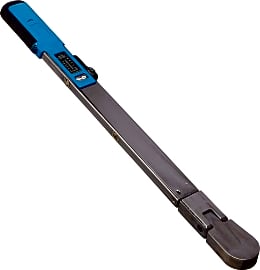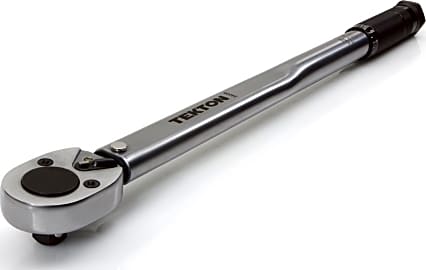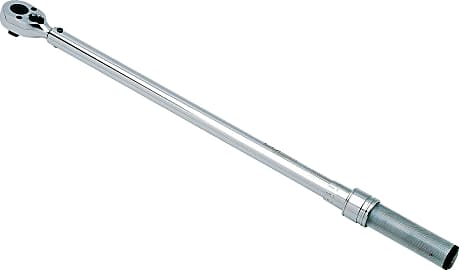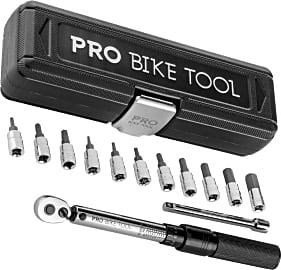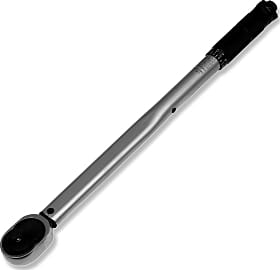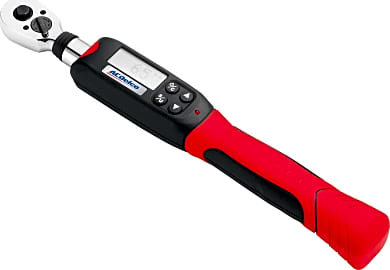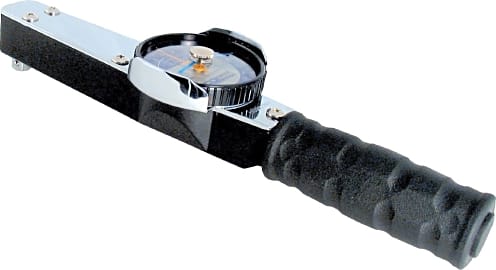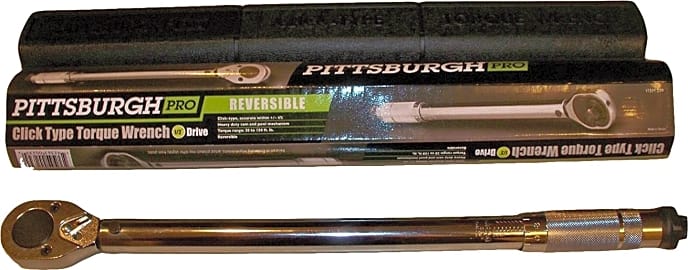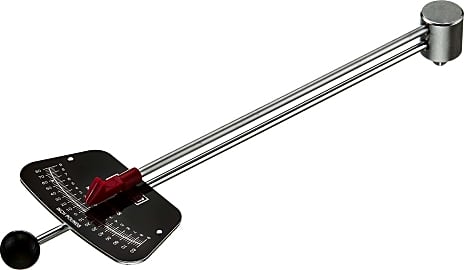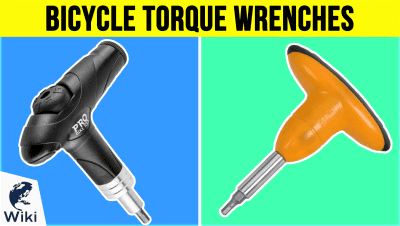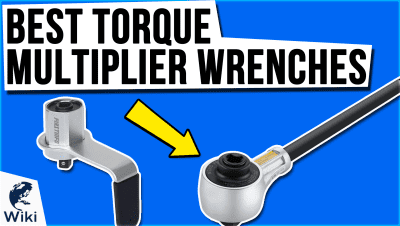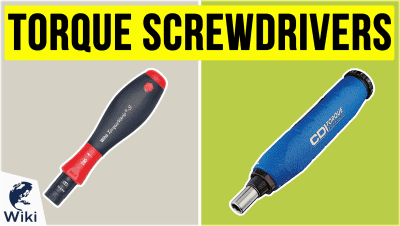The 10 Best Torque Wrenches

This wiki has been updated 42 times since it was first published in March of 2015. If you're a professional mechanic or a DIY perfectionist, you know that precision is of the utmost importance when it comes to setting industrial components. Torque wrenches, like the ones on this list, are specially designed to offer accurate measurement of the force applied to lug nuts and bolts, allowing you to meet the specified tightness required for whatever project you're working on. When users buy our independently chosen editorial choices, we may earn commissions to help fund the Wiki.
Editor's Notes
February 25, 2021:
With all of our choices from our last round of updates continuing to be great selections for this category, it was an extremely straightforward visit to this list that saw no major, substantive changes occur. Believing that the last editor for this list struck a nice balance of professional-level models – like the Capri Tools 31100 and CDI Micrometer Adjustable, which can both handle up to 250 foot-pounds of torque – and affordable, consumer-grade options – like the Ares Newton Meter and ACDelco Digital, which are rated for a maximum of 80 and 99 foot-pounds, respectively – it seemed like these rankings were still in good shape, so we decided to leave things relatively untouched.
If the Pro Bike Tool Maintenance Kit is the option here that caught your attention most, and cycling’s your game, then you might also be interested in perusing our list of bicycle torque wrenches. And, if analog instruments are a hassle you despise, then please feel free to hop over to our list of digital torque wrenches.
June 25, 2019:
Currently, the best torque wrenches are still offered by exactly the brands you might expect, including Tekton, Precision Instruments, and Capri Tools. But we've also added the Pro Bike Tool Maintenance Kit, a high-performing option for working on carbon bikes. It's a good value for the price, especially considering that it arrives with 11 bits and a dual drive that can measure in both clockwise and counterclockwise directions. As for competitors, the CDI Micrometer Adjustable remains a good choice, although to some, it doesn't click quite loudly enough. If you aren't paying close attention, in other words, you might miss it, to the detriment of whatever you happen to be working on. But it is made in the USA and calibrated well, so for many users, this slight issue may be worth overlooking. Plus, it meets ISO 6789 standards, for your peace of mind. There's also the EPAuto ST-010-1, a low-budget option that may be slightly less precise and only measures torque in the clockwise direction.
Special Honors
Mountz Insulated If your day-to-day work involves hazards of the electrical kind, then you may need the Mountz Insulated and the protection it affords in high and low voltage situations. You can feel confident in relying on this model, as it meets IEC 6900 standards. mountztorque.com
Wheeler F.A.T. Wrench Gunsmiths both experienced and amateur may appreciate the Wheeler F.A.T. Wrench, which is packaged with 10 bits and a bright yellow torque wrench that should fit comfortably in the hand. It claims to be accurate to +/-2 inch pounds, with an adjustment range of between 10 and 65 inch pounds. btibrands.com
Choosing The Right Tool For The Job
The tools developed to meet that specific need would ultimately find meaningful applications well beyond the maintenance of New York City's subterranean infrastructure.
To those of obtaining little experience with the use of hand and power tools, it might seem a bit baffling to consider the vast range of available drill bits, the many sizes of screw and nail, or the varied shape of hammer at the disposal of the professional or DIY enthusiast. But every tool exists for a reason, where some can be used across a range of applications, such as the common flathead screwdriver or the hacksaw. Other tools are so specialized as to properly serve in only one capacity.
While a tool with such a specific applications might seem silly to the uninitiated, it can actually mean the difference between a job done properly or one poorly executed. And choosing the right tool for the job certainly means much greater efficiency, especially in the hands of a trained and experienced professional.
If you were a plumber plying his trade in the year 1918, your life was about to become much easier. That's because 1918 was the year the world saw the first torque wrench after it was invented by Conrad Bahr, an employee of the New York City Water Department. Mr. Bahr developed the early torque wrench so that he and his associates could more easily and reliably secure the bolts on the water and steam pipes they serviced while updating and repairing the complex systems beneath the city streets.
The tools developed to meet that specific need would ultimately find meaningful applications well beyond the maintenance of New York City's subterranean infrastructure. Today, torque wrenches are used in industries ranging from the automotive to the aerospace to dentistry and well beyond.
Generally speaking, a torque wrench is used to make it easy to apply torque, also known as rotational force, to a nut or a bolt. A torque wrench allows not only for easy application of this rotational force, but also for its precise application, helping to prevent the over tightening of a nut. This is of critical importance when working with sensitive machinery such as a car's engine, computer hardware, or any other mechanisms with moving and/or fragile components.
Manually Powered Torque Wrenches
While a manually powered torque wrench might not be able to deliver as much force as an electrically or pneumatically powered option, what it lacks in raw power it more than makes up for in terms of precision and control. Whether you choose a highly sensitive hand powered torque wrench with an adjustable range of foot pound settings (many hand torque wrenches can be set for anywhere between 30 to well over 200 foot pounds) or if you simply trust the deftness of your own wrist to stop turning when needed and choose a simpler, more affordable option, these tools can be a great asset to workers in various industries.
From the plumbing of the toilet to the shelves in the garage, you will find hardware almost everywhere you look that can be serviced by a compact torque wrench.
A hand powered torque wrench can also be useful for everyday use, making it easier to change a tire, build certain pieces of prefabricated furniture, or to loosen or tighten any of the many nuts and bolts found around the house. From the plumbing of the toilet to the shelves in the garage, you will find hardware almost everywhere you look that can be serviced by a compact torque wrench.
The only major shortfall of a hand operated torque wrench is its lack of speed, which can indeed be an issue when you have multiple nuts or bolts to service. For the professional working on an assembly line or servicing a large machine, there's no substitute for a good powered torque wrench.
The price range for manual torque wrenches is vast, so make sure to carefully consider you needs before you spend big money on a top-of-the-line manual option when a more affordable tool would have sufficed.
Electric Torque Wrenches
When you have lots of nuts and bolts to tighten, save your wrist and turn instead to a powered torque wrench. A pneumatic torque wrench can deliver loads of power, but these units also require a compressor; thus the popularity of the electric torque wrench both with professionals and amateur hobbyists alike.
When you have lots of nuts and bolts to tighten, save your wrist and turn instead to a powered torque wrench.
A good battery powered torque wrench can deliver up to 1,100 foot pounds of twisting action, which is more than enough muscle for use in the automotive industry, for use in construction, or for any number of other commercial grade applications. Often, however, an electric torque wrench is at its most useful not when tightening a nut or bolt but rather when loosening and removing a piece of hardware.
Especially when it comes to older nuts or bolts that have been rusted in place or for that finicky lug nut stubbornly refusing to budge when you need to change a tire, an electric torque wrench can provide the reverse power needed to get the nut or bolt to back out.
If you want a decent battery powered torque wrench, you will need to be ready to spend hundreds, but you will also be ready for almost any project that involves nuts and bolts. And, if you suffer from arthritis or have hands or wrists weakened by age, injury, or infirmity, a power tool is a great way to save yourself from the discomfort caused by constant twisting motions.


